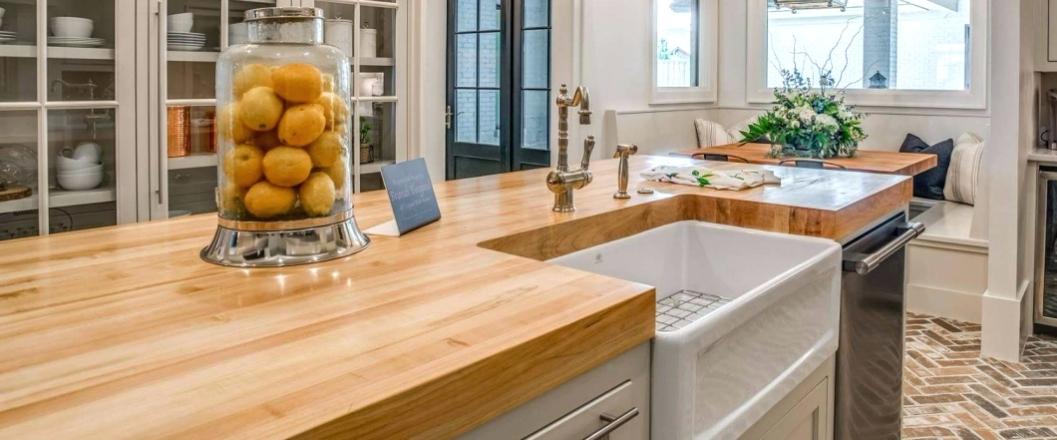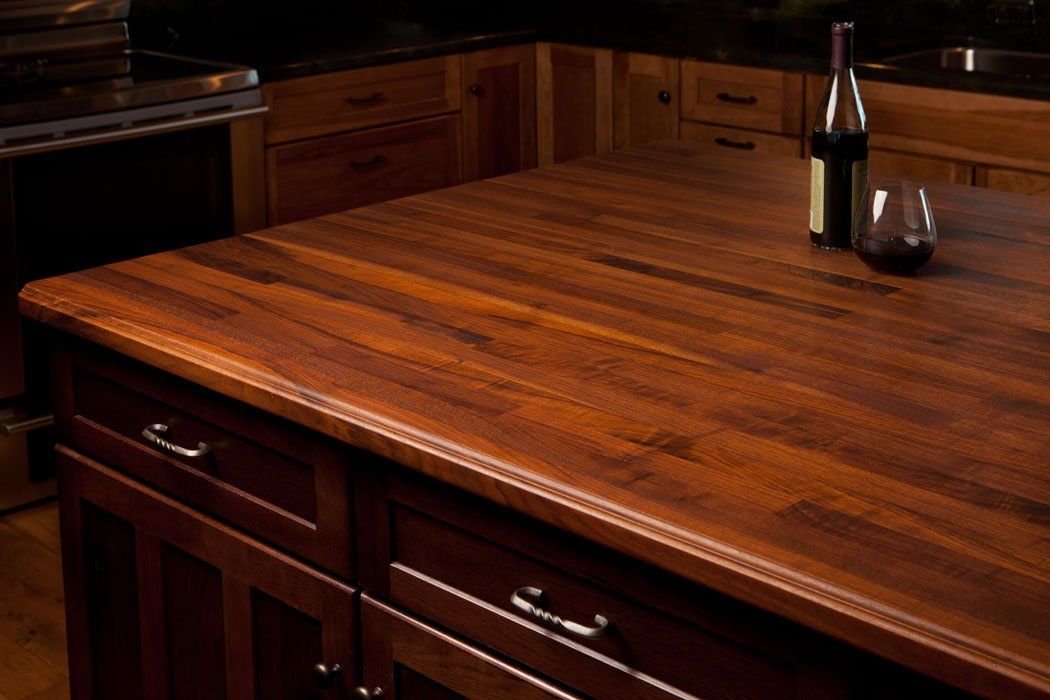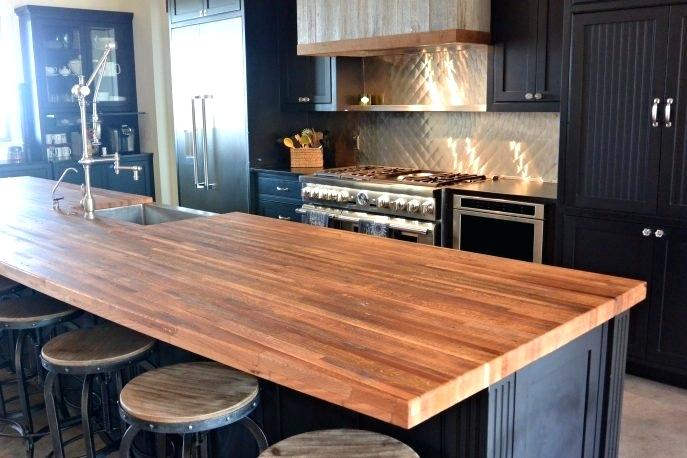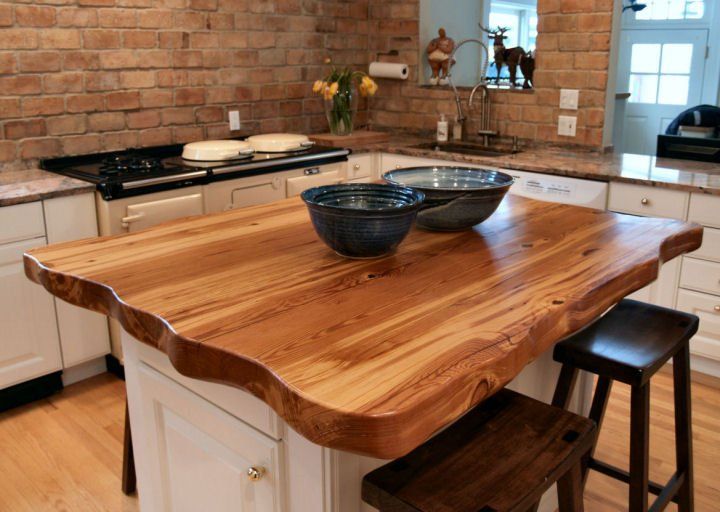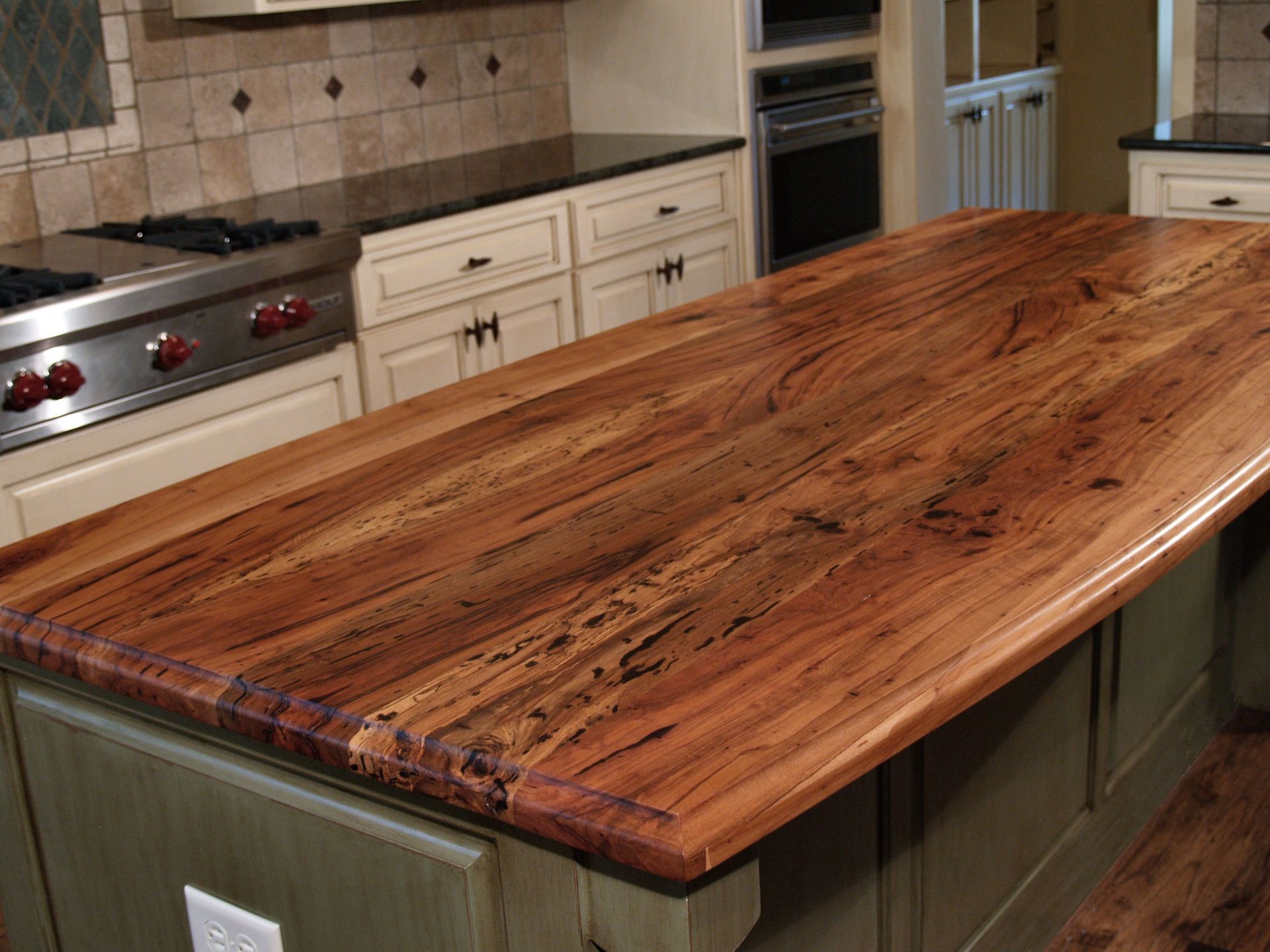BUTCHER BLOCK / WOOD Countertops
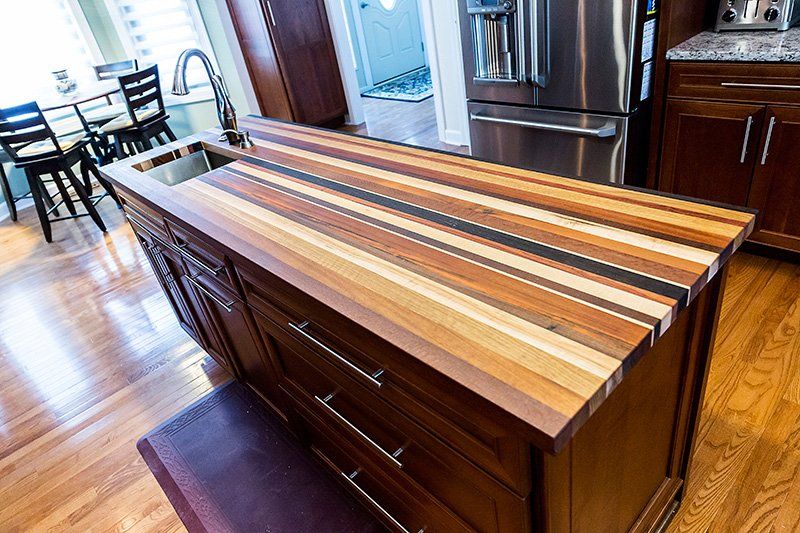
One Old World idea coming back into vogue in today's modern homes: wood countertops.
As homeowners search options in kitchen and bath design in the constantly changing world of styles, more are turning to unique, out-of-the-box ideas. Wood countertops are also part of the green remodeling movement, since many woods are fully renewable and are often gathered from recycled sources. In addition, unlike laminate or solid surface counters, wood countertops are fully biodegradable once they have run their full course.
Wood Countertops: Going Against the Grain
When you consider the long history of wood as a building material, and the warmth that wood countertops bring to any kitchen, you can begin to appreciate the beauty that wood has over the other options. Wood countertops aren't necessarily for all homes. Like all countertop choices, wood counters have both advantages and disadvantages.
Styles and Species of Wood Counters
One of the best aspects of wood countertops is the sheer number of options and style upgrades available such as:
Flat grain, end grain, and edge grain.
Inlays, checkerboard patterns, borders, and stripes with various species.
Best Wood Species for Countertops
Shopping for custom wood countertops, you'll begin to appreciate what fine craftsmanship can do with the myriad of species available.
Some of the best wood species to choose are these hardwoods:
- Wenge
- Brazilian cherry
- Bamboo
- Maple
- Walnut
- Oak
- Teak
When choosing species, be sure to tell your provider what your end-goal is for your wood countertops.
Will you be using them as bar tops? Will they be used as butcher blocks? Will there be a sink mounted underneath or on top? These are all important in the decision-making process, as some species perform better than others in various applications.
5 Points to Consider Before You Buy Wood Countertops
In the hopes that you will intelligently weigh the possibility of installing a wood countertop, you do have to be aware of potential drawbacks.
Splitting and Cracking - Because wood is an organic material, it does split, warp, crack, burn, and discolor given the right amount of abuse and neglect. If you have a wood door to the entrance of your home that looks weathered and split, it's simply due to neglect. Wood needs to be maintained, like anything, but it is arguably worth the timeless beauty it provides.
Moisture - Wood and water don't mix. Since most wood countertops will be around moisture from food and from sinks, the fact is that the finish will need to be maintained. The U.S. Food and Drug Administration recommends mineral oil as the finish of choice for butcher block tops, if you are using the surface as a butcher block. Other finishes, such as urethanes and lacquers, aren't food-grade finishes.
The drawback here is that mineral oil finishes need to be re-applied every month in order to maintain effectiveness. A possible solution to this problem is to treat your wood countertop as less of a cutting board and more of a tabletop. Or, you can join the love affair that thousands have with their wood countertops and oil them monthly. It all depends on your level of interest and time. Tip: If you want a "set-it-and-forget-it" kitchen countertop, do not purchase a wood countertop; go with solid surface or laminate.
Sinks - If you are planning on installing a sink into the top, then having the surface finished with a more durable finishing material is crucial. Otherwise, the wood could split, warp or even blacken.
Stains - If any stains occur, they can be sanded out, but you want to avoid the warping and splitting if you can. Just be sure to have your provider seal the countertop with a waterproof, durable sealant. If, however, you absolutely must use the top for a cutting surface and want to have an oiled top with a sink, just stay on top of any standing water and sand out any discoloration that occurs. Frequent re-oiling will be necessary in such a case.
Joinery - When ordering from a supplier, you really should ask how they join the strips together to form the tops. Finger jointed tops are a cheap solution, but also one of the worst by industry standards. If you cut for a sink or fixtures into your finger jointed top, you'll expose these unsightly joints and really not have much to do about it except get creative (like use a surface mount sink vs. the drop in sink you ordered months ago). Finger joints don't last as long as full length strips that superior suppliers provide.
Cost of Wood Countertops
Every wood countertop is custom-made. Every price factor is variable--species of wood, size, finish, cutouts, etc. All factors affect the price of wood countertops. So the more information you have at the ready for your supplier, the more accurate your price will be.
Generally, you can expect wood countertops to fall in the range of $75 to $150 per square foot, including installation.
Wood countertops remain a luxury-class item for those seeking to spruce up their kitchens and bathrooms. Once installed, your wood countertops will give you years of service and enjoyment.

